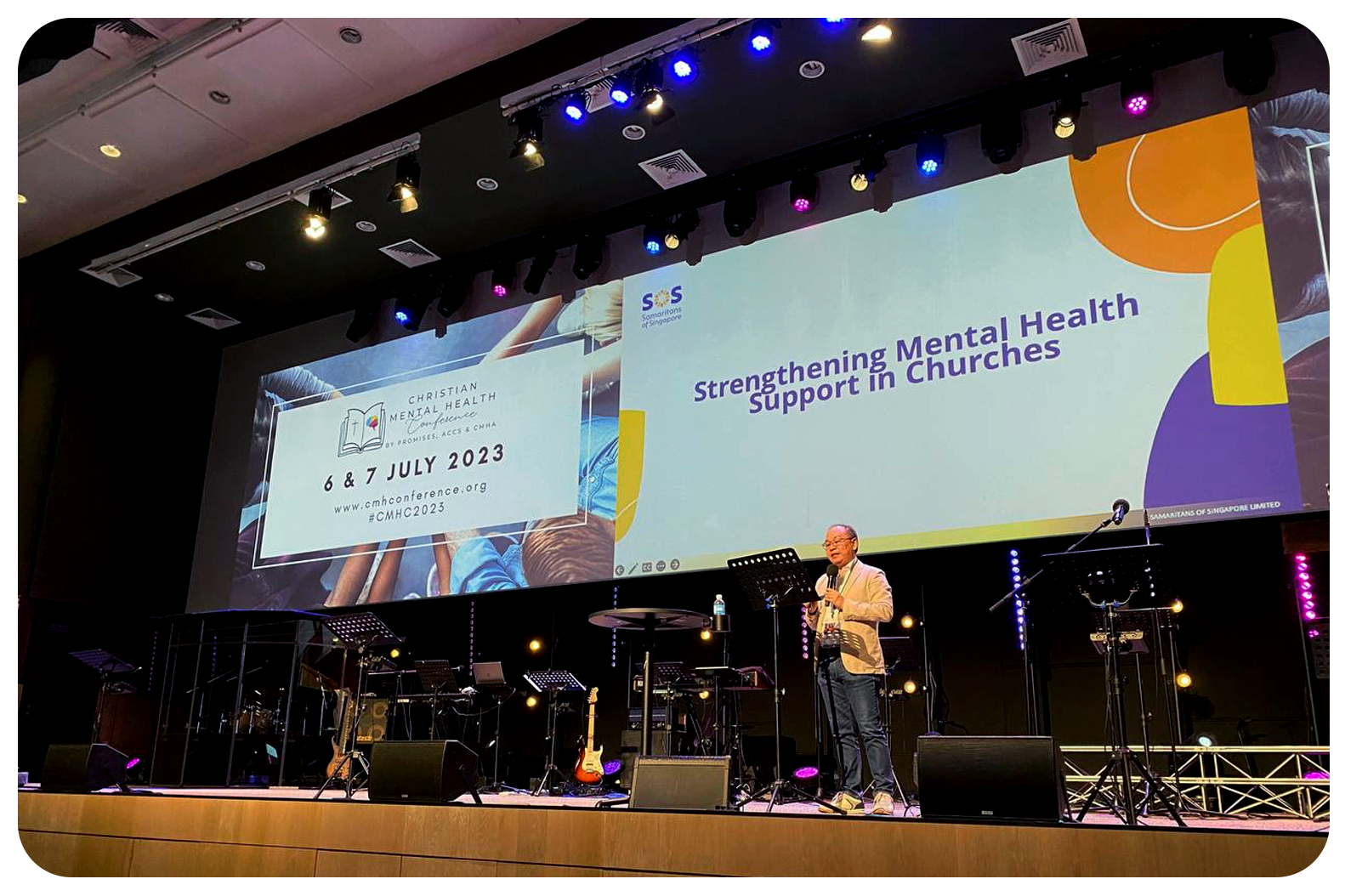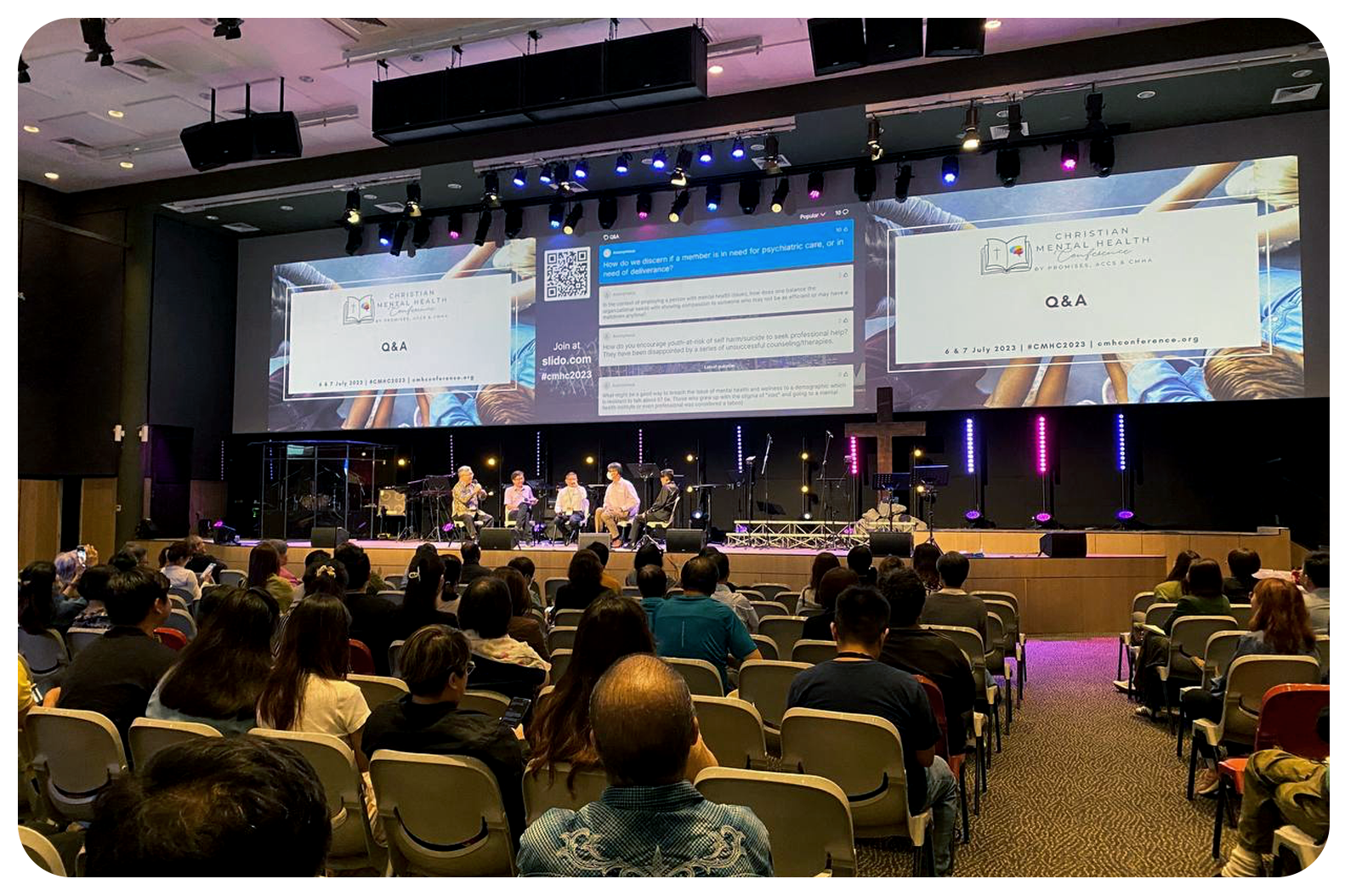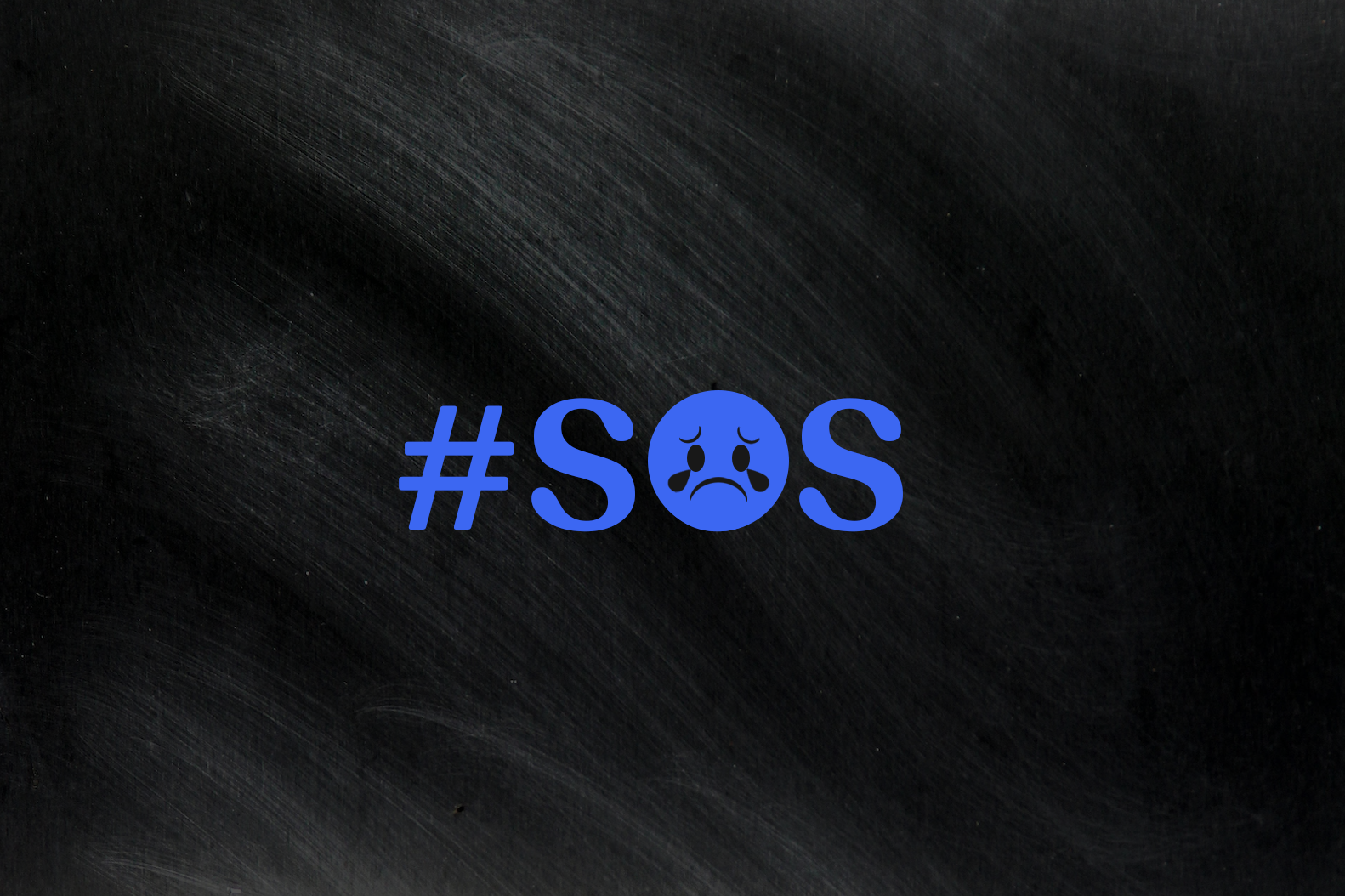At last week’s Christian Mental Health Conference 2023, Samaritans of Singapore (SOS) CEO Gasper Tan spoke on trends relating to suicide statistics in Singapore, the landscape of mental health from a young person’s point of view today and touched on what we can all do to better support those at risk.
Our writer, SHANNON CHOW, was in the audience and prepared this article which is based on Tan’s message on the day, as well as a short sharing by Senior Pastor Chua Seng Lee. You’ll find it below, followed by a few of her own takeaways at the end.
GASPER TAN: Younger people are increasingly dealing with mental health crises today.
According to 2021 findings from the Institute of Policy Studies, Social Lab and the National Youth Council, 1 in 3 youths found themselves to be constantly worried and were unable to control their anxieties.
Therefore, I think it is important that we equip them with coping strategies and help them build mental resilience at a young age to help them better manage future life challenges.
Last year, Singapore recorded the highest suicide death rate since 2000, approximately 476 deaths.
If we investigate across age groups, we find a constant increase with youths (aged 10-29) having the highest exponential increase.
Suicide remains the leading cause of death for youths aged 10-29 for the fourth consecutive year.
Another 2016 survey conducted by Singapore Management University (SMU) found that 8 in 10 people associated suicide with stigma. This is worrying because stigma hinders help-seeking.
It was also found that only 15.6% of them found suicide prevention support effective. This is another concerning sign because it may mean that youths are less willing to seek help.
Strengthening mental health support in churches
So how can churches address mental health for youths?
Firstly, churches should be equipped through training so we can identify early signs of mental health issues and how to support them.
Secondly, we should be ready with resources and referrals so that we can provide youths with the necessary support or early intervention.

Thirdly, the church should be a safe physical space where they feel comfortable to interact face-to-face and create their own network of support.
Lastly, we need to help build healthy habits. The church is a great place to encourage and help youths through Bible studies and fellowship activities, and it’s a space they can relate to when they need support.
An appeal to parents by Rev. Pastor Chua Seng Lee
To end off, Senior Pastor Chua Seng Lee, co-chair of the Conference, shared insights gleaned during the recent Mental Health Conversation that was organised by Thir.st.
During the Conversation, there was a survey done with the youths in the audience.
Out of 176 respondents to a word cloud question on what is the biggest mental health struggle faced by young people, the majority of respondents said “anxiety” and “depression”.
Out of 195 respondents to the question, 96% of them either personally struggle with mental health issues or know someone who does.
Out of 187 respondents to the question, 97% of them personally had self-harm or suicidal thoughts or know someone that has had similar thoughts before.
And of 176 respondents to the question, 75% have trusted adult mentors who listen to their struggles and journey with them.
A final question was posed during the dialogue: “What is something I wish my parents could understand about my struggles?”
The majority of respondents’ sentiments centred around a disconnect between youths and their parents, with most appealing to parents to be open and take their issues seriously.

A Gen Z’s thoughts
As a humble 21-year-old among many pastors and senior leaders in the Conference, I was deeply comforted to see church leaders taking time out of their busy schedules to equip themselves in the area of mental health.

I believe youths today aren’t just seeking solutions, they’re also looking for safe harbours where their struggles are taken seriously.
Our churches must be places that make no exceptions for any kind of struggle, mental health included.
This means getting the church equipped to be God’s net that catches people, and it means building a safe community.
I think the sheer attendance of the conference speaks volumes about the willingness of the church to support their youths and I take comfort in their efforts.
However, it takes both hands to clap.
For those who struggle with mental health in the Church, trust in your community and the leaders God has placed in your life.
It’s by asking for help and giving God a chance to work in our lives that we can start to heal.
- What are your support systems in times of crises?
- Know someone who’s facing a difficult time? How can you be a friend to him or her?
- What is your role to play in a church that is a safe harbour in the storm?
- What is one promise of God you can stand on in a mental health crisis?









